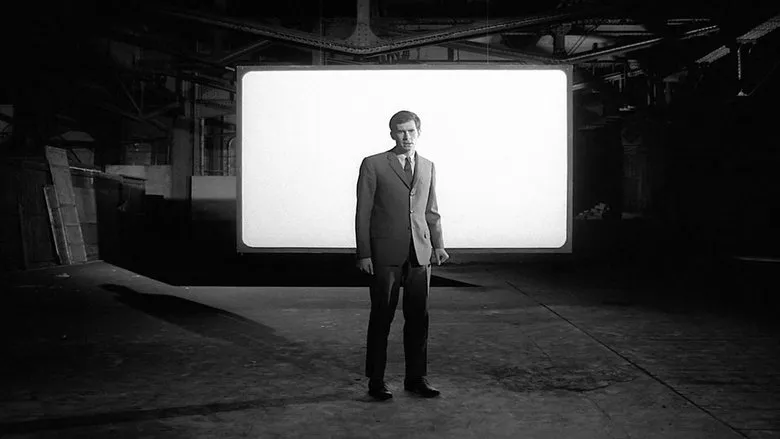The Absurdity of Justice: Exploring Kafka’s “The Trial”
One morning, Josef K., a diligent bank executive, was abruptly awakened by two unfamiliar men who intruded into his private space, delivering the shocking news of his arrest and nonchalantly helping themselves to his breakfast. This bizarre scenario sets the stage for Franz Kafka’s masterpiece, “The Trial,” a work as unsettling as it is insightful. According to Brod’s biography, Kafka’s friends famously erupted in laughter when he first read them the opening chapter – Kafka himself included, laughing “especially hard”.
Like Kafka, and like K., they lived under the rule of law. Stefan Zweig, in “The World of Yesterday”, paints a picture of pre-World War I Austro-Hungarian Empire as a golden age of peace and progress. Society held a steadfast belief in advancement; the state purportedly guaranteed the rights of its citizens, the laws were just, order prevailed, and societal behavior aligned with legal precepts, fostering optimistic expectations for the future. Yet, “The Trial” throws this ordered world into disarray, presenting an absurd ordeal, reminiscent of the most frightening visions. Laughter then, becomes a natural response to events wildly incongruous with perceived reality.
Kafka’s World: A Blend of Reality and Nightmare
Franz Kafka, a Prague native born in 1883, led a double life as an insurance employee and a dedicated writer. His untimely death in 1924 preceded the posthumous publications of “The Trial” (1925) and “The Castle” (1926), both of which reverberated profoundly throughout the literary landscape. Today, Kafka’s influence permeates diverse artistic expressions.
“A Cage Went in Search of a Bird”
Initially, K. dismisses the gravity of his situation. He firmly believes in his rights, asserting that no power should arbitrarily constrain him. He promptly presents his identification, demanding to review an arrest warrant. Yet, the men merely assert they are following protocol, and that the authorities are never wrong. As K mulls his strange predicament, he considers simply walking out.
If K. had acted, the narrative might have come to a swift halt. However, K. immediately recoils from the idea of resisting through flight under duress. Remaining in place, K hopes for reasoned discourse with those who arrest him. This initial hope of K stems from two sources: either trust in the established legal system, or distrust of the system, where immediate resistance could prove to be an admission of guilt.
His landlord and neighbors appear detached, showing indifference to K.'s dubious arrest. Pending developments with his case, K. continues his daily employment schedule, seemingly unaffected by the ordeal. This peculiar paradox, where the protagonist exists in disjunction with those around them, is a signature narrative device in Kafka’s fictional settings. Within these absurd dramas, Kafka employs a third-person narrator strictly bound to the protagonist’s perspective.
The Trial Begins: A Descent into Hostility
K.'s hearing solidifies this characteristic portrait of a man facing systemic hostility alone. Summoned by telephone and wandering amongst residential structures, and knocking at random doors, K. only then discovers the courtroom. Inside, K faces individuals in attire seemingly outmoded. The judge asks sarcastically: “Are you a painter and decorator?”. The spectators laugh, and K. points out that the Magistrate’s inquiry shows how mistaken the trial is as a whole.
K. realizes he must demonstrate his innocence, but he is unaware of either his transgression or the provenance of his arrest. Compelled to repeatedly defend himself, K. meets figures who tell of the court as a pointless and corrupt game. Leni, a caregiver, bluntly recommends he confess so as to ease potential punishment. The houses associated with the court are essentially owned by the court and those with legal power. Kafka masterfully presents the modern world like a clockwork mechanism.
The Modern Power Mechanism: An Overwhelming Force
According to Zygmunt Bauman, modern bureaucracy breeds psychological distance. The executor of violence maintains cold moral neutrality. Bureaucracy replaces moral responsibility.
“He Died Like a Dog: It Was As If the Shame Should Outlive Him”
K. learns resistance brings no aid, and even as he resists no one will sing of him as a heroic defender of justice. K. is taken to a quarry, understanding they wish to kill him. A figure appears at a window and makes wordless gestures.
Brod relates the end of K to one of a moral crisis or divine intent. A priest tells K the story of “Before the Law” concerning a man at the gate who must simply wait for what he wants. Is something lost about the radiance of law, or about something in the nature of man himself?
However, K., though never accepting the system around him, finds the end of existence an absurdity – the shame outliving him. K fails in finding ultimate truth, and judges himself worthy of blame with permanent shame.